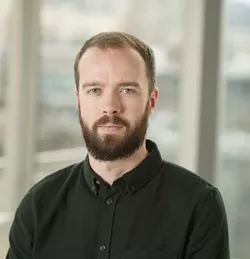Imay be a little grayer than I was eight years ago, but this is what a feminist looks like," the twice-elected president of the United States said to cheers last month at the first United State of Women Summit in Washington, D.C.
Barack Obama is the first sitting president to call himself a feminist — a crucial move that I hope will highlight the importance of every person becoming involved in the fight for equality. Speaking for myself as a man who works for a women-led organization that primarily serves women and women's rights movements, I can tell you that men have a responsibility to undo the twisted system that keeps equality out of reach. Men need to participate and to advance justice, but not in the way that we may have been taught to. Instead, we need to take a different approach:
Listen to and trust women
Sorry, wannabe knights in shining armor: women got this.
It's often overlooked that the most vocal opponents of rights like workplace protections for pregnant women, paid family leave and access to reproductive health care primarily are men. At the same time, the fight for these basic rights — and the life-altering injustices at their core — are so often marginalized as "women's issues" by these very men.
Movements created by women are responsible for some of the greatest achievements of our time, propelling the Civil Rights movement. Yet at the same time, research shows that men are intrinsically trusted more than women. In a piece exploring how deep this conditioning goes, Damon Young, writer and co-founder of VSB magazine, admits that this stigma permeated his nearly 10-year relationship with his wife. Despite trusting who she is and her intentions, he realized he had no trust in her feelings, which is a pervasive attitude.
"The theme that women's feelings aren't really to be trusted by men drives (an estimated) 72.81 percent of the sitcoms we watch, 31.2 percent of the books we read, and 98.9 percent of the conversations men have with other men about the women in their lives. Basically, women are crazy, and we are not," writes Young.
Without a doubt, this work would get accomplished faster if men checked this unfounded social stigma, and stopped dismissing the real, lived experiences of women. It is our responsibility to follow the lead of women. They know what's best for their lives and movements.
Recognize your role
Understand that women have conditioning that you did not have, as workplace practices remain stacked against them. When you have that in mind, you can change your interactions. A great description for being an ally is to pretend you're an intern. What do you do as an intern? You hang out, take notes, speak up when asked to. You would not hold your own meetings, where you run the show, dictating strategies and positioning yourself front and center. Help get the work done — through volunteering, making donations, or simply showing up at public events to show support — but don't take it over.
Challenge other men
One of the most important steps we can take is to call out sexism when we see it. When you see other men catcalling, harassing women at bars, or hearing men talk about women in a degrading way, step up and say something.
Writing about sexual assault in particular, Washington Post columnist Jody Allard lays it out clearly and succinctly.
"It's never been the job of women to dismantle rape culture. Rape culture was created and perpetuated by men. It flourishes and thrives because it suits men. Rape culture is a man problem, and it's up to men to solve it," Allard wrote.
In the wake of the Stanford rape case, it was easy to spot men who perpetuated stigma and dismissed the experience of the victim. She was drunk, they said. She walked alone. Case closed. Ignoring that there's only one cause of rape — rapists. The comments were and are indefensible.
So use your voice for good, and remember that your intent to help means absolutely nothing if you can't back it up. Believing in equality is not the same as fighting for it. ♦
Paul Dillon, a Center for Justice board member, manages public affairs for Planned Parenthood of Greater Washington and North Idaho.

















